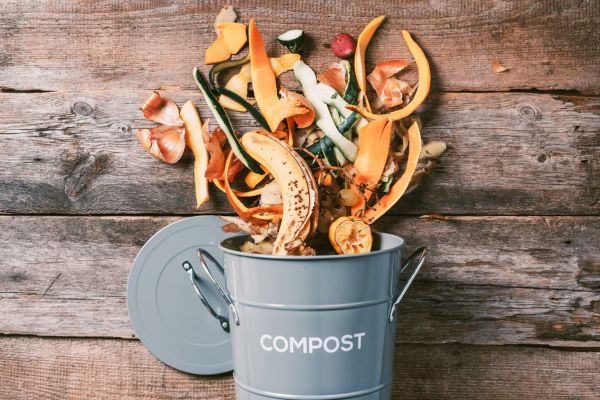In the face of escalating environmental challenges, the urgency to embrace sustainable practices and reduce waste has never been more critical. With landfills brimming and oceans inundated with plastic, it is evident that our current patterns of consumption are taking a toll on the planet. However, hope resides in the collective power of individual actions. By making conscious choices to minimize waste, each of us can become an agent of positive change, contributing to a greener and more sustainable future.
This article sets forth on a transformative journey, exploring ten easy and practical ways to reduce waste in our daily lives. From small adjustments to significant lifestyle changes, the path to waste reduction is accessible to all. As we navigate the realm of sustainability, we uncover the intrinsic connection between our actions and the preservation of the environment. Embracing the responsibility to reduce waste is not a mere aspiration; it is a profound commitment to safeguarding the planet for present and future generations. Together, we embark on a collective mission to embrace a more conscientious and sustainable way of living.
Embrace the 3 R’s: Reduce, Reuse, Recycle
The timeless mantra of “Reduce, Reuse, Recycle” holds the key to waste reduction in our daily lives. First and foremost, we must prioritize reduction by being mindful of our consumption habits. Simple actions such as opting for products with minimal packaging or purchasing in bulk can significantly reduce our waste output. Embracing reusable alternatives for single-use items, like water bottles, shopping bags, and coffee cups, diminishes the demand for disposable products.
Secondly, we must foster a culture of reuse. Before discarding items, consider their potential for a second life. Repurpose glass jars for storage, upcycle old clothing into fashionable accessories, or refurbish furniture to breathe new life into aging pieces. By extending the life of our belongings, we contribute to waste reduction and create a sustainable cycle of resourcefulness.
Finally, recycling remains a vital component in waste management. Familiarize yourself with your local recycling guidelines and ensure that recyclable materials are properly sorted and disposed of. While recycling is a crucial step, it is equally essential to prioritize reduction and reuse to maximize our waste reduction efforts.
Mindful Grocery Shopping and Food Waste Reduction
Food waste is a significant contributor to global waste, and conscious grocery shopping can play a pivotal role in its reduction. Before heading to the store, plan meals and create shopping lists to avoid impulsive purchases. Buying only what you need not only curtails food waste but also saves money.
Opt for products with minimal packaging or purchase from bulk bins to minimize plastic and paper waste. Choosing locally sourced and seasonal produce reduces the carbon footprint of transportation and supports local farmers. Additionally, consider purchasing imperfect or “ugly” produce, which often goes to waste due to cosmetic standards set by retailers.
At home, employ strategies to reduce food waste further. Properly store perishable items to extend their shelf life, and utilize leftovers creatively for new meals. Composting organic waste, such as vegetable scraps and coffee grounds, diverts it from landfills and transforms it into nutrient-rich soil. By adopting mindful grocery shopping and reducing food waste, we contribute to a more sustainable food system and lessen the environmental impact of our dietary choices.
Conscious Consumption of Single-Use Plastics
The ubiquity of single-use plastics presents a significant challenge in waste reduction. However, conscious consumption can help us curb the tide of plastic waste. Make a habit of carrying a reusable water bottle and coffee cup to avoid disposable alternatives. Switch to metal or bamboo straws, and choose cloth or silicone food wraps over plastic cling film.
When dining out, politely decline single-use plastic cutlery and containers. Instead, bring your own reusable utensils or containers if possible. Many retailers and businesses now offer eco-friendly alternatives, and supporting these initiatives encourages others to follow suit.
To combat plastic waste on a broader scale, support legislation and businesses that prioritize sustainable packaging and plastic alternatives. By actively reducing our reliance on single-use plastics, we send a clear message that waste reduction is a collective responsibility that begins with individual choices.
Opt for Eco-Friendly Cleaning and Personal Care Products
Every aspect of our daily routine provides an opportunity to reduce waste, including our cleaning and personal care practices. Swap disposable cleaning wipes for reusable microfiber cloths or washable sponges. Embrace eco-friendly cleaning products with biodegradable and non-toxic ingredients, reducing harmful chemicals that impact both human health and the environment.
In the realm of personal care, choose products with minimal and recyclable packaging. Consider switching to refillable containers for shampoos, conditioners, and lotions. Explore the world of eco-friendly personal care products, such as bamboo toothbrushes and plastic-free dental floss.
By making informed choices in cleaning and personal care, we demonstrate our commitment to reducing waste while safeguarding the well-being of our homes and bodies.
Sustainable Fashion Choices and Responsible Clothing Disposal: Nurturing Ethical Style
Amidst the vibrant world of fashion lies a poignant responsibility to weave sustainability into the fabric of our choices. Embracing sustainable fashion is an empowering expression of our commitment to reducing waste and mitigating the environmental impact of the apparel industry. By choosing to adorn ourselves with garments crafted from ethically sourced and eco-friendly materials, such as organic cotton, hemp, or recycled fibers, we make a conscious statement of support for a more responsible and mindful fashion ecosystem.
Sustainable fashion extends beyond the materials; it encompasses the ethos of ethical production and fair trade practices. By supporting brands and artisans who prioritize transparency and equitable treatment of workers, we amplify the call for a fashion industry that cherishes both the planet and its people. From handcrafted pieces that embody timeless elegance to innovative designs that embrace cutting-edge eco-friendly technologies, sustainable fashion celebrates diversity, creativity, and respect for the environment.
In the pursuit of waste reduction, responsible clothing disposal holds equal importance in the journey of sustainable style. As we bid farewell to beloved garments that have served us well, we are beckoned to consider alternative paths for their farewell. Traditional donation bins make way for a myriad of creative options, such as clothing swaps with friends or community-driven initiatives that circulate fashion within a circular economy. Repurposing old clothing into cleaning cloths or transforming them into craft materials showcases our resourcefulness and reverence for the inherent value of each textile.
When recycling is the chosen path for clothing disposal, we embrace the idea that the end of one garment’s life marks the beginning of another’s. By participating in textile recycling programs, we breathe new life into the fibers, reducing the burden on landfills and conserving valuable resources. Responsible clothing disposal underscores our role as conscious consumers, empowering us to take ownership of the lifecycle of our fashion choices and instill a sense of purpose in our sartorial journeys.
Sustainable fashion choices and responsible clothing disposal together form a harmonious symphony, weaving together the threads of style and sustainability. As we dress ourselves in the fabric of ethical fashion, we celebrate the beauty of choices that align with our values, transforming our wardrobes into an expression of environmental consciousness. By nurturing ethical style, we embrace a future where fashion thrives in symbiosis with the planet, inspiring a global movement towards a more sustainable and regenerative fashion industry.
Conclusion
In our daily lives, waste reduction is an attainable and vital goal that shapes the collective effort to safeguard the planet for future generations. By embracing the principles of “Reduce, Reuse, Recycle,” we set the foundation for responsible consumption and resourcefulness. Mindful grocery shopping, conscious plastic consumption, and eco-friendly product choices contribute to reducing our ecological footprint and fostering a more sustainable lifestyle.
The power to effect positive change lies within each of us, and adopting these ten easy ways to reduce waste transforms individual actions into a collective force for environmental preservation. Embracing a waste-reducing mindset elevates our commitment to sustainable practices, inspiring others to follow suit. As we continue on this journey of conscious living, let us remember that even small steps can lead to significant strides in waste reduction and the creation of a greener, cleaner, and healthier world for all. Together, we pave the way towards a future where waste is minimized, resources are valued, and the planet thrives in harmony with humanity.



